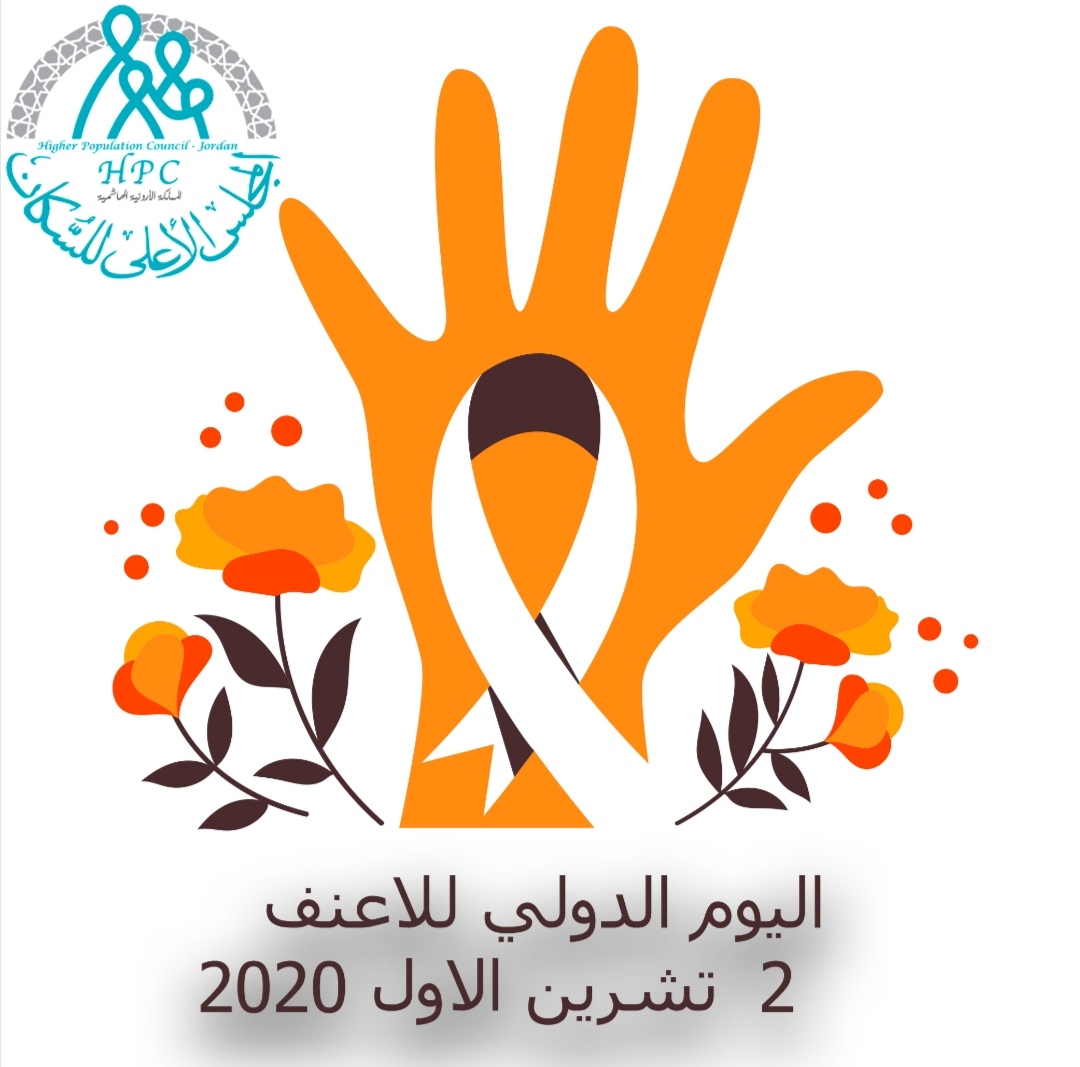

Jordan joins the world tomorrow to commemorate the International Day of Non-Violence, which falls on October 2nd of each year under the slogan “Say No to Violence”. As per UN General Assembly Resolution no.271/61 of June 15, 2007, this event is an occasion to “disseminate the message of non-violence, including through education and public awareness”. The UN resolution also reaffirms "the universal relevance of the principle of non-violence" and the desire "to secure a culture of peace, tolerance, understanding and non-violence".
In a special press release on this occasion, HPC Secretary General, Dr. Abla Amawi, said that violence stands out as a significant challenge that must be firmly addressed to counter its serious impact on the lives and social values of persons, particularly women. Amawi added that according international estimates published by the World Health Organization in 2018, one in three women (35%) around the world experience violence in their lifetime by an intimate partner or sexual violence by a non-partner.
Amawi added that a UN report on domestic violence against women issued this year revealed that around 243 million women and girls have experienced forms of domestic violence and sexual harassment and abuse during last year. The report explained that these forms of violence have increased since the Covid-19 outbreak as countries began imposing lockdowns and home quarantines since March.
According to a UN report on domestic violence following the Covid-19 outbreak, registered cases of this type of violence increased in many countries due to heightened anxiety and stress from lack of job, social and health security and loss of businesses following lockdown measures to combat the spread of the disease.
In the press release, HPC pointed out that a policy paper prepared by Sisterhood is Global International (SIGI) showed an increase in gender-based violence indicators at the national level during Covid-19, as SIGI handled 800 cases of violence in the first three months of the pandemic. On the other hand, the Center for Strategic Studies – University of Jordan, reported a rise in domestic violence cases, while the Family Protection Department indicated that domestic violence increased by 33% in the first month of the lockdown.
The policy paper also reported that only 19% of female victims of violence seek help, of which 3% contact the Family Protection Department. The paper calls for transitioning to electronic means to respond to cases of gender-based violence and building a network of civil protection, response and rehabilitation, especially during emergencies and crisis.
HPC also pointed out that the most concerning thing about violence, as indicated by the studies, is that that the majority of the victims are females, especially wives, sisters, daughters, mothers as well as children in general. Considering that violence is mostly gender and age based. Furthermore, the Population and Family Health Survey (2017-2018) by the Department of Statistics revealed that 20.4% of ever-married women (aged 15-49) have experienced physical, sexual or psychological violence by a current or former spouse in the 12 months prior to the survey. Women who experienced physical violence reached 12.7%, those who experienced sexual violence reached 3.3% and those who experienced psychological violence 16.1%.
To support efforts to combat violence, particularly gender-based violence, HPC developed this year a draft national sexual and reproductive health strategy (2020-2024), which spells out a collaborative approach with national stakeholders to combat violence against women.







